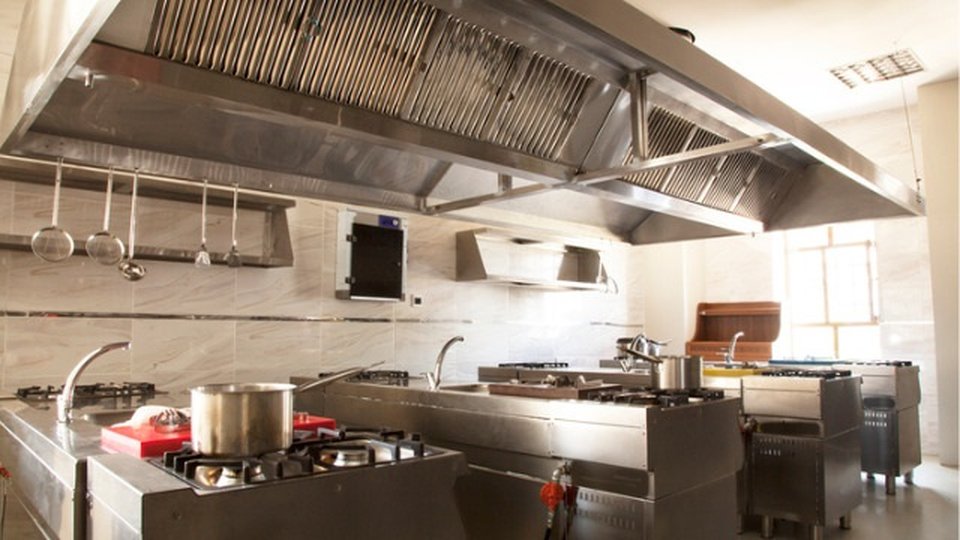Blog
Deep dive: Pros, cons of integrating a commissary kitchen into the food truck operation
In the first part of this two-part series on commissary kitchens we examined what they are, types and issues relating to renting and using such a space option. In this second part we examine the benefits, as well as the downsides, of using a commissary kitchen as part of a food truck operation.

March 23, 2020 by Richard Traylor — Writer, WebstaurantStore
In the first part of this two-part series on commissary kitchens we examined what they are, types and issues relating to renting and using such a space option. In this second part we examine the benefits, as well as the downsides, of using a commissary kitchen as part of a food truck operation.
There are both pros and cons when it comes to integrating a commissary kitchen into the food truck operation.
Here's a look at what to consider before you take the big step.
Potential benefits of commissary kitchens
Some food truck operators are forced to use commissary kitchens to comply with local laws, but others choose to use them for their convenience. Here are a few additional benefits to using a commissary kitchen:
• Location: Commissary kitchens in a prime location can be a huge benefit to your business. If you have multiple food trucks or carts, a commissary kitchen can provide a central location where you can prep all of your food and then divide it for each truck. When looking for a commissary kitchen, note its location in relation to your customers and its proximity to highways and main roads.
• Amenities: Some commissary kitchens will provide special amenities for your food truck, such as water and grease disposal, which are essential for meeting health code regulations. Additionally, many commissary kitchens will have cleaning and maintenance supplies that you need but may not be able to fit on your truck, like fryer filtration systems and specialized cleaning brushes. But, before you sign any contracts, check and see if these amenities are included in the rental price or if they are extra.
• Equipment: One of the main benefits of commissary kitchens is the access to more equipment as well as more specialized appliances. You can only fit so much on a food truck, but a commissary kitchen provides a larger space for you to work. But, if your food truck needs specialized equipment like waffle makers, smokers, or combi ovens, make sure the kitchen has what you need before signing a contract.
• Parking: Commissary kitchens that offer overnight parking are very valuable, especially in big cities where parking is scarce. If the kitchen does offer parking, check to see if the parking is covered or open and how secure it is.
• Storage: Space is a big concern in food trucks, so one of the questions you should ask before deciding on a commissary kitchen is how much storage space you get, including refrigerated space. This is especially critical when looking for a shared kitchen space, because the limited storage space is split among several different parties.
• Additional benefits: Some commissary kitchens will have a mechanic on hand that can perform maintenance on your truck, which is great if you're not particularly handy with tools. Others might have a manager who can help you fill out the necessary forms to get your truck inspected and up to code. Additionally, commissary kitchens can provide vital networking opportunities for getting hired for parties and events.
Potential downsides of commissary kitchens
Although using commissary kitchens may be convenient for some businesses, they may not be a viable option for every food truck. Here are some potential downsides of using commissary kitchens:
• Cost: While commissary kitchens may be a good idea for food truck businesses that are just starting, they may not be the most economic long term investment. Commissary kitchen rates depend on the location, but costs can range between $15 - $35 an hour. In the beginning, paying this fee is worth it to get started and use the equipment, but if your truck becomes successful and grows, it's cheaper in the long run to lease your own kitchen space.
• Inconvenient location: Many commissary kitchens will choose locations outside the city center or in the suburbs because real estate is cheaper and they can afford a larger space. While this will drive down the rental costs, it will also mean more money spent on gas and more time wasted in transit from the kitchen to your customers.
• Scheduling conflicts: When sharing a commissary kitchen with other businesses, you'll have to change your schedules to make sure everyone gets equal access. And while you may have equal use of the space, it could be at an inconvenient time, like early in the morning or late at night, which won't work with everyone's schedule.
Due to local laws and regulations, commissary kitchens are a necessity for some food trucks. For others, though, they’re a convenient location for preparing and storing food, cleaning their truck, and performing maintenance. There are several different types of commissary kitchens that are available, so keep this information in mind to get the best possible deal for your business.
About Richard Traylor
Richard Traylor graduated from Temple University in the winter of 2014 with a degree in Strategic Communications. After graduating, he taught English in South Korea for two years, during which he was fortunate enough to travel and see the world. In October 2016, he returned home and started to work in SEO Content at Webstaurant Store. This blog previously ran on Webstaurant Store.
 ChatGPT
ChatGPT Grok
Grok Perplexity
Perplexity Claude
Claude





